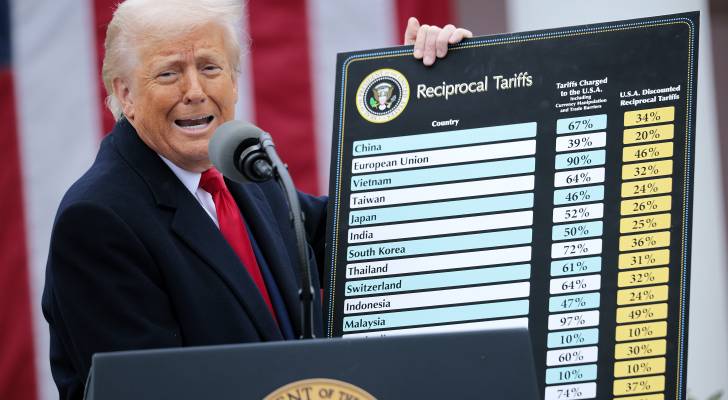
With talk of trade wars, fear of stagflation and slashes to Social Security staffing, you might be justifiably concerned about your retirement savings.
Following the Fed’s latest policy meeting, Federal Reserve chair Jerome Powell said during a press conference that “recent indications … point to a moderation in consumer spending” as “surveys of households and businesses point to heightened uncertainty about the economic outlook.” He added that “some near-term measures of inflation expectations have recently moved up,” with tariffs being a driving factor.
While Powell believes there’s a lot of uncertainty around the economic outlook, it’s clear that many Americans, policy and economic experts, and even the Federal Open Market Committee (FOMC) — the policy-making wing of the Federal Reserve System — are concerned about the near-term effects of President Trump’s economic policies.
The FOMC’s most recent Summary of Economic Projections (SEP) downgraded GDP growth to 1.7% this year — from a projection of 2.1% in December — and increased the projection for core personal consumption expenditures (PCE) inflation to 2.8% from 2.5% in December (PCE inflation is the measure used to set the Fed’s target inflation rate, which is currently 2%).
Thanks to Trump’s aggressive economic policies, there’s now fear of stagflation — simultaneous slow economic growth and elevated inflation — hitting the U.S. economy.
“The Federal Reserve’s projections confirm what millions of Americans are already thinking: President Trump is steering our economy toward disaster,” said Alex Jacquez, chief of policy and advocacy at non-profit think tank Groundwork Collaborative, in response to the latest Fed projections.
“Launching chaotic trade wars with our allies and gutting Social Security, Medicaid and other vital programs in order to fund tax breaks for his billionaire donors isn’t making life more affordable for working-class families,” added Jacquez. “It is, however, a perfect recipe for stagflation.”
While other economists and industry-watchers are more guarded in their assessments, many agree that Trump’s policies could lead to a period of stagflation.
